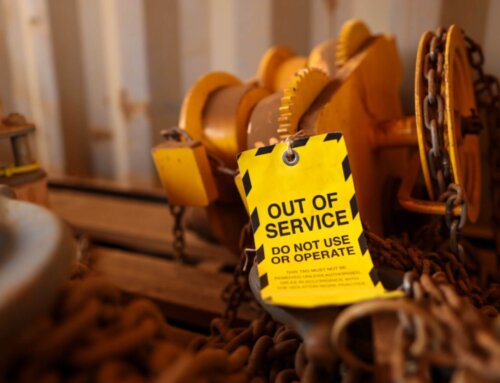The government finally got its way with the implementation of the delayed ‘whiplash reforms’ on the 31st of May 2021.
A potted summary for those unsure as to what the so-called reforms entailed, can be described thus: “the introduction of a fixed tariff of compensation for those who suffer whiplash injuries in motor accidents and who decide to pursue a claim, together with a rise in the small claims limit for personal injury claims from £1000 to £5000”.
For many years, insurance companies have argued for reform of a system which they saw as enabling fraudulent road traffic accident claims. (Others take issue with that assessment.) The reforms, introduced through the Civil Liability Act 2018, are seen by the government and insurance companies as a means of tackling the ‘problem’. Together with a rise in the small claims limit for personal injury cases from £1000 to £5000 in road traffic accident cases (with some exceptions) the reforms are aimed at reducing the numbers of fraudulent claims. They will also keep a lot more money in insurance companies coffers, as opposed to paying it out for genuine injury claims. It is fair to say that not everyone agrees with the rationale behind the reforms.
What is the position with employers liability claims?
Trade Unions, employers liability solicitors and other likeminded stakeholders fear the Road Traffic Accident (RTA) reforms are a pre-cursor to an assault on accident at work claims, too. Indeed, the government originally intended the existing £1000 small claims limit in employers liability claims should be doubled to £2000, at the same time the whiplash reforms were introduced.
Fortunately, shortly before the new whiplash regime came into force, Justice Minister Lord Wolfson announced the small claims limit for all personal injury claims other than RTA, would rise to £1500, instead of £2000. In addition, the rise would be paused for another year. The revised small claims limit for other personal injury claims will now come into force in April 2022.
The importance of the small claims limit in relation to road traffic accident claims, accident at work claims and other types of compensation litigation, cannot be overstated.
For claims where the amount of personal injury compensation is likely to be less than the small claims limit, no legal costs are recoverable from the insurers by the winning party. In other words, an employee who sustains an injury in an accident at work caused by the employer’s negligence, would most probably be unable to finance legal representation, if the injury sustained is expected to be less than the small claims limit. This is because any legal costs incurred would not be recovered from the employers’ insurer, even if the worker won the case.
Why is maintaining the small claims limit at a low level so important in employers liability cases?
- Employers owe their employees a duty of care to keep them safe at work. If the employer breaches that duty of care and an employee gets hurt as a result, it is only right the injured employee has access to justice to recover compensation.
- If the small claims limit is raised, it pushes some types of injury into the category of being small claims, where they weren’t before the raise in the limit.
For example, some categories of injury that have a value of between £1000 and £2000, include: some skin conditions, minor scarring, compensation payable to the family of the deceased following a Fatal Accident, neck injury, some levels of psychiatric or psychological damage, transient eye injuries, collapsed lung injury, aggravation of chest conditions, work related upper limb disorders, minor brain injury, loss of or damaged back tooth and simple fracture of a cheekbone. ***
- Even with a reduced increase in the small claims limit to £1500 as opposed to £2000, some of the injuries listed above, will still fall to be dealt with as small claims.
- Though an injury worth between £1000 and £1500 may seem a relatively small amount, to some:
- To the individual concerned it may be significant
- Being able to seek legal assistance to recover injury compensation, allows the injured employee to ask a solicitor to recover other important items of claim, such as loss of earnings, cost of medication and rehabilitation services such as physiotherapy.
- No employee expects to get injured whilst going about their work duties. If they are injured as a result of their employees negligence, no matter the amount of compensation involved, they have a right to claim for it and have access to the legal services required to achieve this.
- Probably the most important reason why the small claims limit should remain at a low level is this; contrary to what the mainstream media, and certainly the insurance industry and the government would have us believe, personal injury claims are generally a force for good. They punish bad behaviour. They help change poor attitudes to health and safety. They can lead to health and safety new laws being introduced or existing ones changed.
History has taught us that bad working practices can be resolved by pressure being put on employers and indeed whole industries, as a result of employees bringing compensation claims. One outstanding example of this, is in relation to the asbestos industry.
Professional drivers and the effect of the ‘whiplash reforms’
On a final note, it is worth pointing out that the whiplash reforms and the accompanying increase in the small claims limit in road traffic accident claims claims to £5000, could have catastrophic effects for workers who drive for a living. We have already noted that raising the non-RTA small claims limit by as little as £500 to £1500 will have the effect of turning some types of injury into ‘small claims’.
Professional drivers who are injured whilst on duty, in accidents that were not their fault, could find they are unable to get legal assistance to claim for an extensive range of injuries where the value of those injuries is expected to achieve less than £5000 in compensation.
Are we seeing the thin end of the wedge?
Increasing small claim limits aren’t token reforms. Every raise of the limits affects someone’s ability to get access to justice. It leaves the injured victim with the prospect of either not making a claim at all or having to pursue it themselves. Trying to pursue a claim against your employer, with no legal knowledge and no means of getting legal help in the form of a No Win No Fee agreement, is a difficult task.
Acting for yourself also means taking on your employer on what appears to be a more personal level. When a personal injury solicitor takes on your claim, you have a person who is not only an expert, as your ‘go-between’ , but who also acts as a form of buffer between you and your bosses. It makes the claim look less of a personal matter between you and them. Without a legal representative it may, particularly as far as your employer is concerned, seem more ‘personal’, and not in a good way.
If the government, through legislation, make it harder for injured workers to bring claims against negligent employers not only do the injured go uncompensated, but some less diligent employers may be tempted to continue to cut corners, turn a blind eye to bad working practices, and to risk putting their employees safety at risk.
There is a saying that applies to ‘bad habits’:
“If nothing changes, nothing changes.”
*** Injury values taken from the Judicial College Guidelines for the assessment of General Damages in Personal injury Cases









